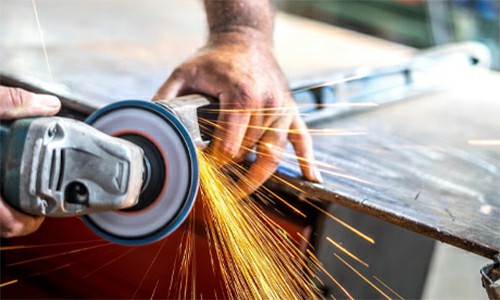Mastering Abrasive Wheels: Types, Uses, and Safety Protocols in Ireland
Abrasive wheels are fundamental tools in various industries, from manufacturing to construction. Understanding the different types, their applications, and associated safety risks is crucial for anyone using these tools. In this guide, we’ll delve into the specifics of types of abrasive wheels, highlight the importance of proper training, and discuss compliance with Irish safety regulations.
Types of Abrasive Wheels
Abrasive wheels come in several categories, each designed for specific tasks. Here are the primary types:
- Grinding Wheels: Typically made from synthetic materials, grinding wheels are used for grinding and sharpening metal parts. Common in workshops and manufacturing, they come in various shapes and sizes.
- Cutting Wheels: These wheels are specifically designed for cutting metal, concrete, or other dense materials. Their thin profile allows for precise cuts, making them valuable in construction and fabrication.
- Polishing Wheels: Utilized primarily for finishing surfaces, polishing wheels help achieve a smooth finish on metals and other materials. They play a significant role in automotive and manufacturing sectors.
Abrasive Wheels Applications
The applications of abrasive wheels are vast and cover multiple industries:
- Manufacturing: Grinding and cutting wheels are essential for shaping and finishing metal components.
- Construction: Abrasive wheels are used for cutting rebar, concrete, and masonry materials.
- Automotive: Polishing wheels are critical for achieving high-quality finishes on various automotive parts.
Risks Associated with Abrasive Wheels
While abrasive wheels are invaluable in many settings, they also pose notable risks if not handled correctly:
- Wheel Breakage: When not properly mounted or if used beyond their specifications, wheels can break, leading to flying debris.
- Overheating: Excessive pressure during operation can cause overheating, which might lead to wheel failure.
- Inhalation Risks: Dust generated during cutting or grinding can be harmful if inhaled, posing respiratory risks.
- Noise Hazards: Prolonged exposure to high noise levels from machinery can lead to hearing loss.
The Importance of Proper Training
Proper training is essential for anyone who uses abrasive wheels. Here’s why:
- Accident Prevention: Understanding how to properly handle, operate, and maintain abrasive wheels can significantly reduce the risk of accidents.
- Compliance with Safety Regulations: Regular training sessions ensure compliance with Irish workplace safety regulations, minimizing legal liabilities.
- Certification: Enrolling in courses such as Abrasive Wheels Training Dublin or Abrasive Wheels Certification Ireland ensures workers are certified and equipped with the right knowledge.
Where to Get Trained
For those in major cities across Ireland, specialized training courses are readily available:
Conclusion
Understanding the types of abrasive wheels, their uses, and safety protocols is vital for any worker or business in Ireland. Ensuring proper training not only protects individuals but also enhances productivity across various industries. For more information about Abrasive Wheels Training and to enroll in a course, contact us at [email protected].



 349,500 Offered Certificates
349,500 Offered Certificates
 24/7 Online Training
24/7 Online Training
 Money Back Guarantee
Money Back Guarantee
 Fully Accredited Courses
Fully Accredited Courses
